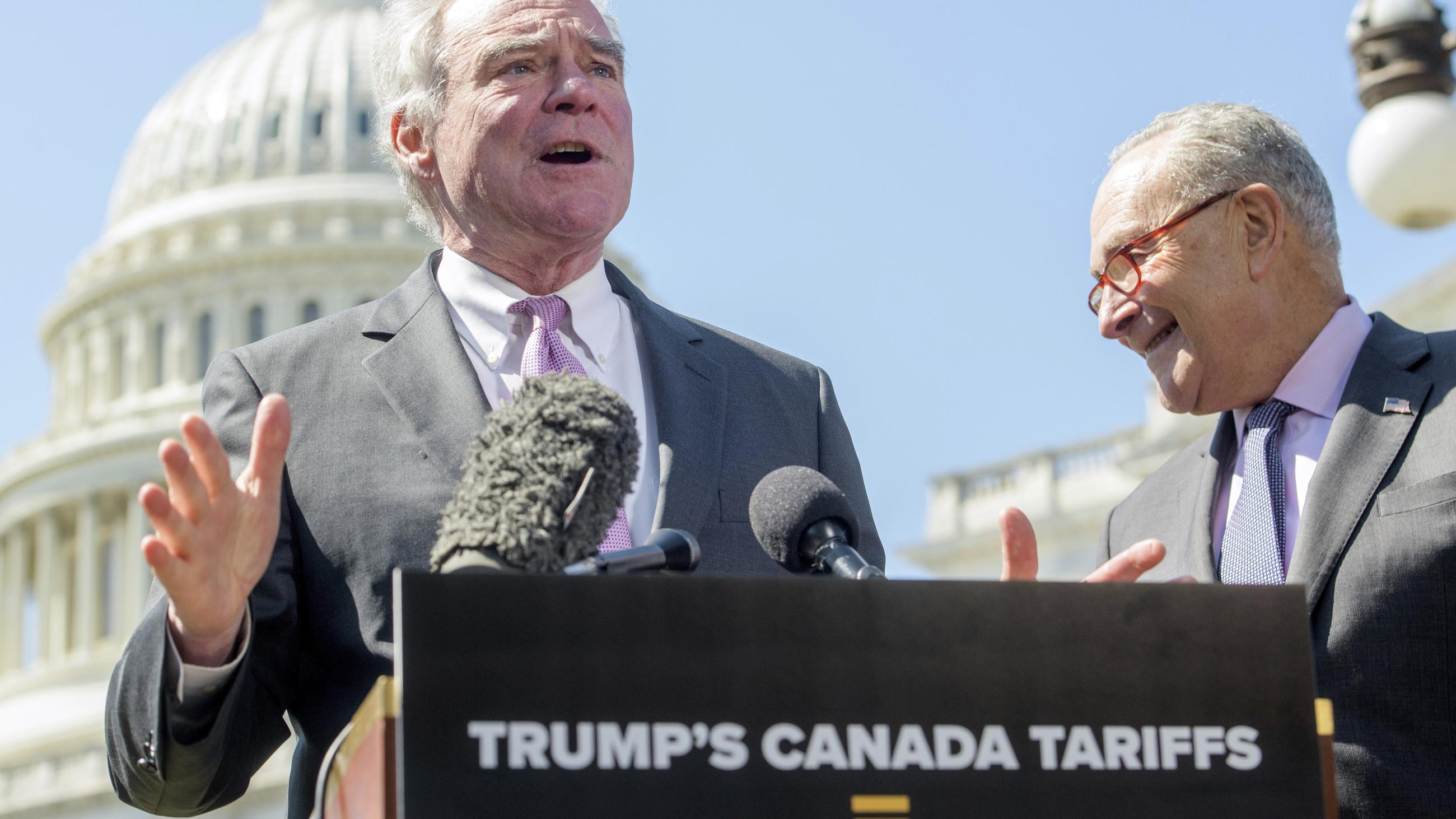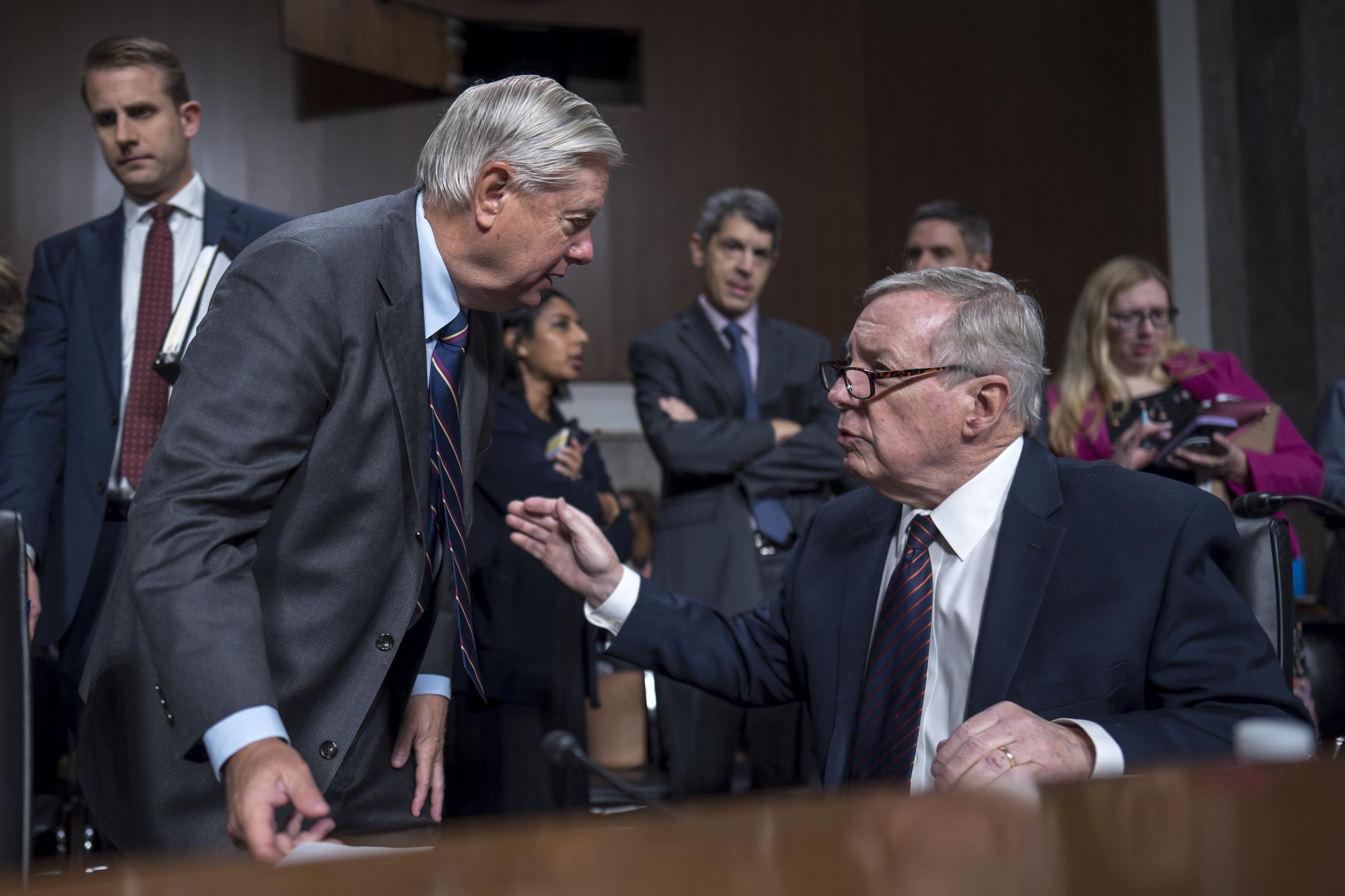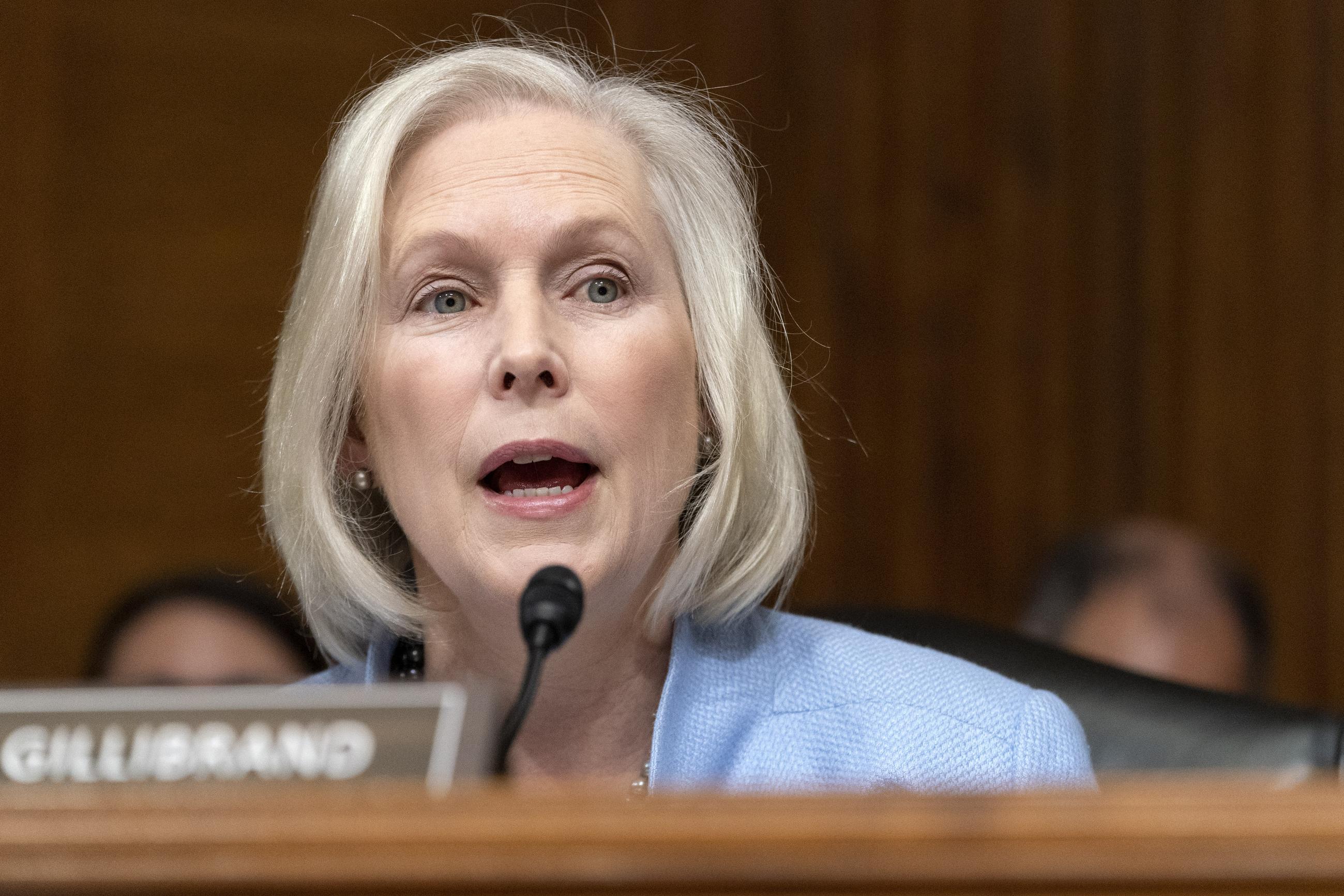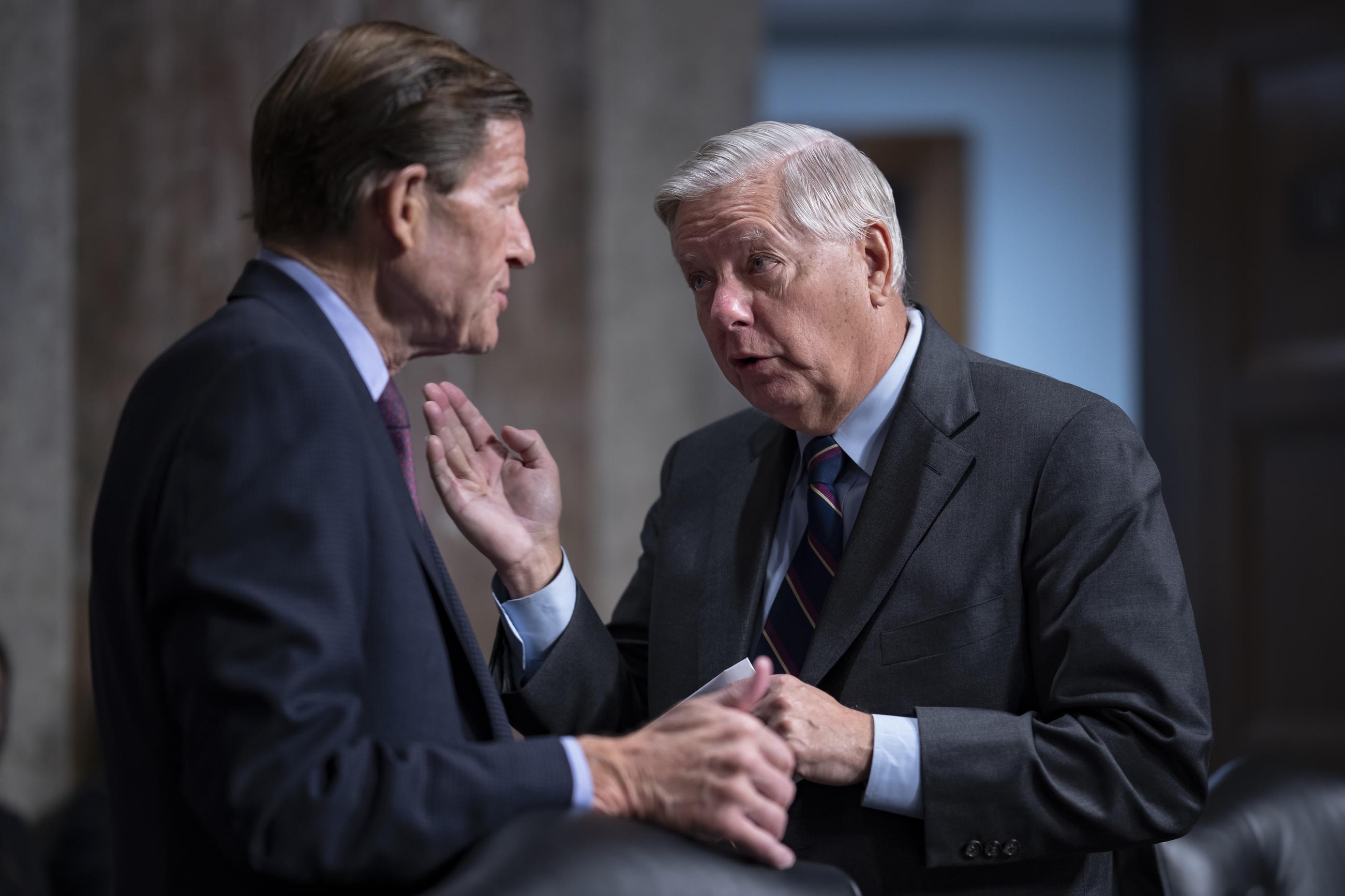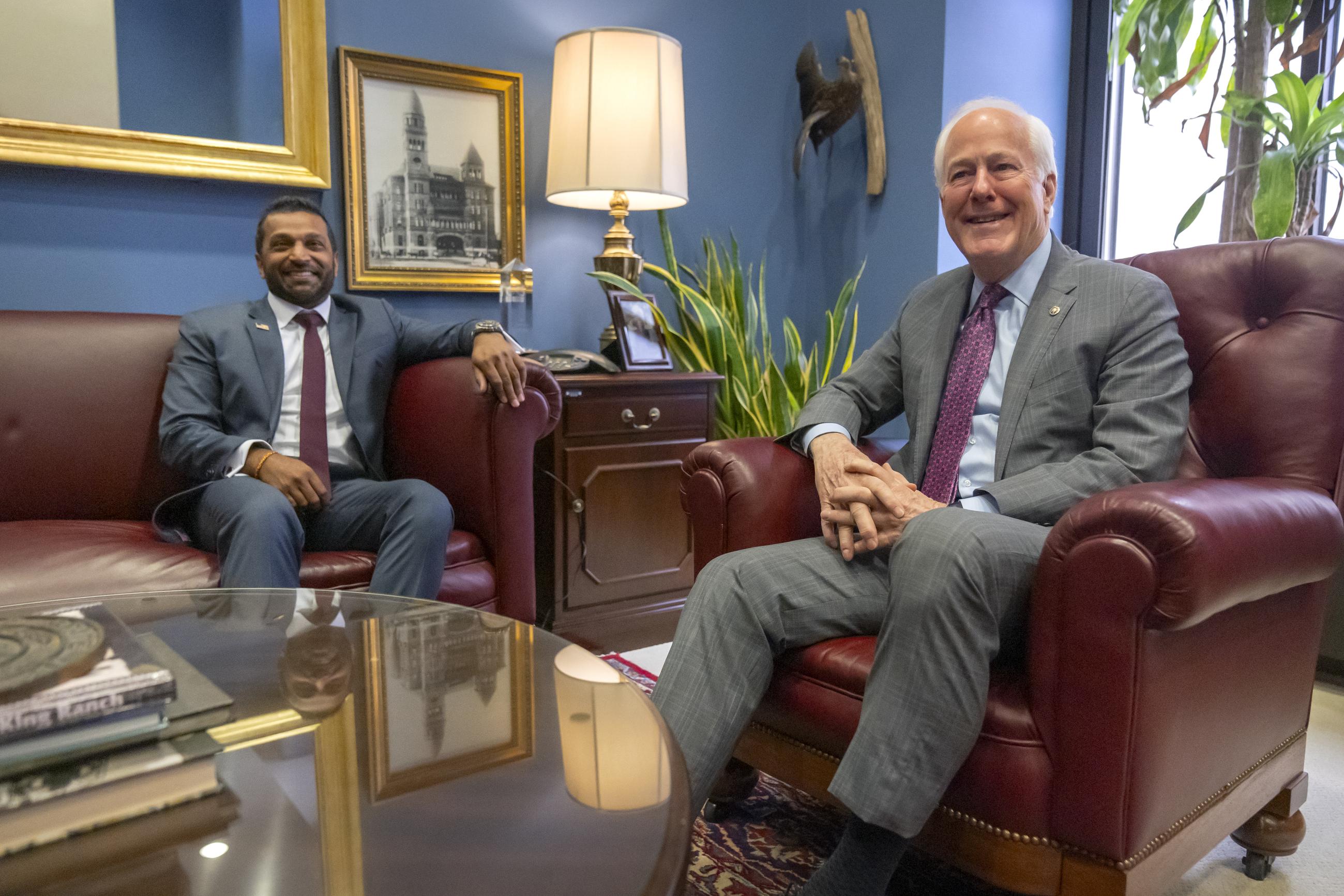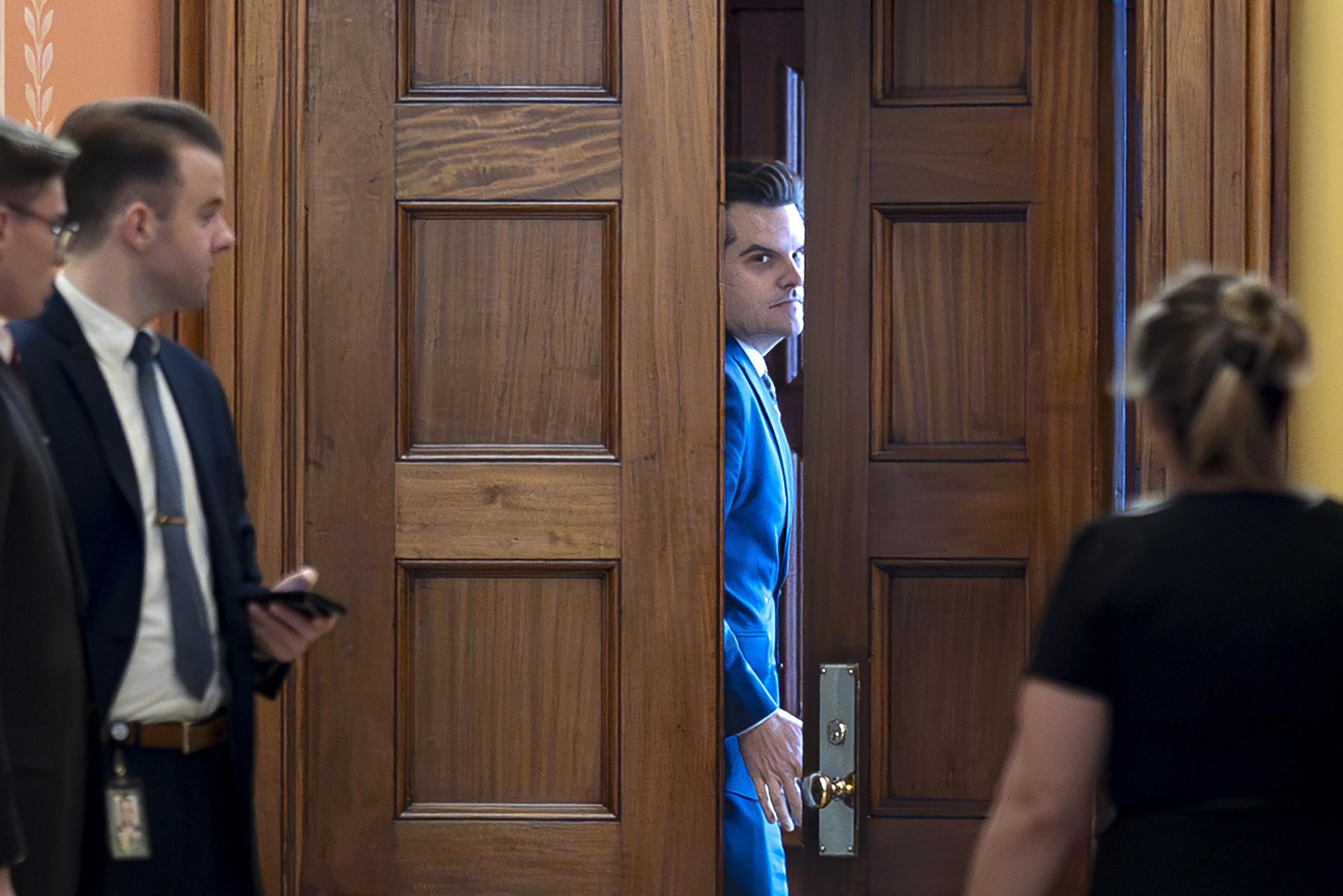Congressional Republicans have mostly bent to President Trump’s will since he returned to power. But there’s been some recent pushback around tariffs, with some GOP lawmakers beginning to voice their discontent about the administration’s back-and-forth shifts on trade that they say are hurting their constituents.
Five Republican senators joined Democrats Tuesday evening to pass a resolution—52-48—terminating Trump’s 50 percent tariff on Brazil. Four of those same five voted to support another resolution on Wednesday to end the national emergency declaration for the tariffs against Canada.
One more Democratic-led resolution targeting U.S. global tariffs is teed up for a vote by the end of the week.
Though none of this legislation is expected to pass the House, the sponsors say getting their colleagues on the record is the point. The votes come as the president is abroad, continuing to make trade deals, even as some raise eyebrows at home.
Sen. Tim Kaine, a lead sponsor of all three resolutions, told reporters on Tuesday, “The votes are about tariffs, and they're about the economic destruction of tariffs. But they are also really about: How much will we let a president get away with? Do my colleagues have a gag reflex or not?”
He added: “In terms of powers that constitutionally are handed to Congress, are we just going to allow the trade power, which is handed to Congress, or the war power, which is handed to Congress, or the appropriations power, which is handed to Congress, or the nominations advise-and-consent power, which is handed to the Senate, [to be taken] over by this president, or any president?”
Tuesday’s vote included support from Republican Sens. Rand Paul, who cosponsored the resolution, as well as Appropriations Chairwoman Susan Collins, Sen. Lisa Murkowski, Sen. Thom Tillis, and former Senate Republican Leader Mitch McConnell.
“Brazil had a trade surplus, and the impetus behind [the tariff] appears to be a disagreement with a judicial proceeding. I just don’t think that’s a strong basis for using the trade lever,” Tillis told reporters on Tuesday.
All but Tillis also supported Wednesday’s resolution.
“Protectionists eagerly celebrate the revenue from tariff duties. But they don’t talk nearly as much about how much of that revenue they’ll spend protecting American growers and producers from the avoidable harm of their policies,” McConnell said in a statement. “Tariffs make both building and buying in America more expensive.”
Leading into Tuesday’s vote, Kaine said he wasn't sure how many Republicans would join him. But he told reporters he expected to see more than voted for his similar resolution in April on the Canadian tariffs.
A resolution to terminate the emergency that the Trump administration declared for the 40 percent tariffs on goods from other countries will happen before senators leave this week, too. It needs only a simple majority to pass. But all three resolutions would head to a House—if the House were in session, which it isn’t—that voted last month to forbid consideration of any anti-tariff legislation until April.
Kaine said he’s optimistic that simply the prospect of GOP pushback could be enough to convince the administration to reconsider its trade stance.
“I did learn in the first Trump term that the president is responsive to things like this,” the Virginia Democrat said. “When he sees Republicans starting to vote against his policies, even in small numbers, that makes an impression on him and can often cause him to alter his behavior.”
So far, that’s not happening.
Vice President J.D. Vance was on Capitol Hill Tuesday, urging GOP senators to hold the line on a number of administration priorities, including tariffs.
His visit came amid increasing tensions with farm-state Republicans upset over rising agriculture supply costs and a $20 billion bailout of Argentina, while the South American country undercuts American farmers by increasing beef exports to the U.S. and soybean exports to China.
Sen. Josh Hawley told reporters there was “a lot of discussion about cattle ranchers” and the Argentinian beef imports in the closed-door conversations with Vance.
Rural-state senators have grown anxious over the deal—which would quadruple beef-import tariff-rate quotas from Argentina—and the administration’s subsequent messaging to cattle ranchers.
“The Cattle Ranchers, who I love, don’t understand that the only reason they are doing so well, for the first time in decades, is because I put Tariffs on cattle coming into the United States, including a 50% Tariff on Brazil,” Trump wrote last week on social media. “It would be nice if they would understand that, but they also have to get their prices down, because the consumer is a very big factor in my thinking, also!”
Most Republicans continue to support the administration on tariffs overall, even as the hot-and-cold approach has privately rankled them.
The White House says it is currently finalizing a trade deal with South Korea, after finalizing deals with Cambodia and Malaysia over the weekend.
“I think that the policy is working,” Hawley told reporters. “I mean, the president is overseas now. He's pursuing trade deals. He's getting good results. He's bringing in a lot of revenue. And you know, it's been very successful.”
Vance said of the tariffs, “If you look at what we're doing in Asia, if you look at all of the trade deals, the trade barriers that have been dropped by foreign countries on American consumers, they are happening because the president of the United States has been willing to use tariffs to give American workers and American farmers a better deal.
“To vote against [the tariffs] is to strip that incredible leverage from the president of the United States,” the vice president told reporters after the GOP lunch. “I think it's a huge mistake.”
The tug-of-war on tariffs comes as the Supreme Court is set next week to hear arguments about whether Trump can use the International Emergency Economic Powers Act—the 1970s law he’s used as justification thus far—to impose his sweeping tariffs.
“It's tough under IEEPA to get it through two houses and then get it by a veto and override the veto,” Kaine conceded Tuesday.
If the justices “uphold the tariffs, all they are doing is saying tariffs are an action that the president can take pursuant to an emergency declaration,” he said. If they do, he added, Congress “may need to go into the IEEPA statute and even tighten that language up.”
Kaine and others question the president’s justification for the emergency declarations used to impose tariffs. In Brazil, it was the indictment of former president Jair Bolsonaro, a Trump ally. For Canada, the White House has cited fentanyl, and he recently levied an extra 10 percent following an ad Trump disliked. Played during the World Series, the ad used the words of President Ronald Reagan from a 1987 address slamming the use of long-term tariffs.
“Because of their serious misrepresentation of the facts, and hostile act, I am increasing the Tariff on Canada by 10% over and above what they are paying now,” Trump posted to social media.
“The Supreme Court will decide whether tariffs are even an appropriate tool to be used,” Kaine said. “But I'm standing strong for the position that you shouldn't let a president just manufacture emergencies.”
McConnell said, “The economic harms of trade wars are not the exception to history, but the rule. And no cross-eyed reading of Reagan will reveal otherwise.”





